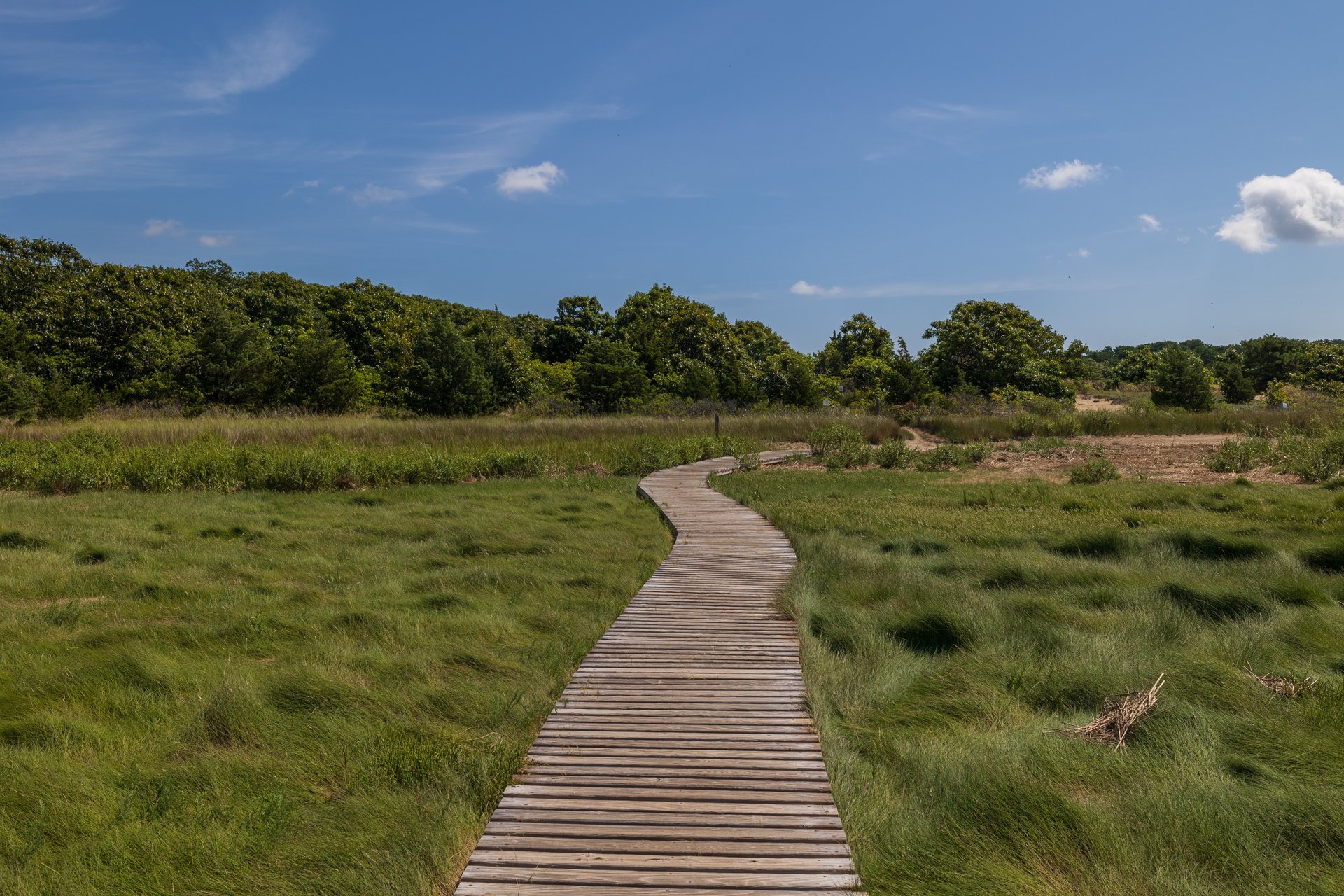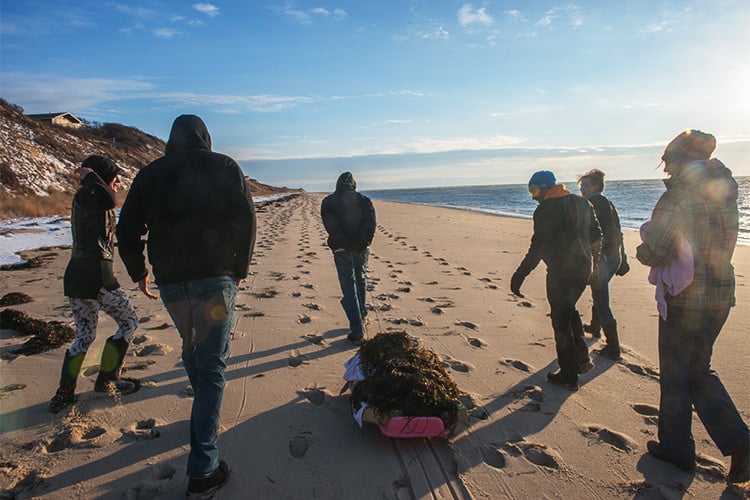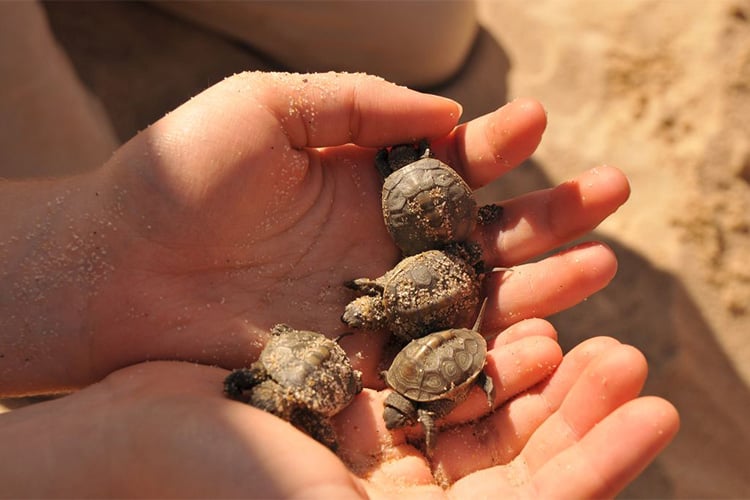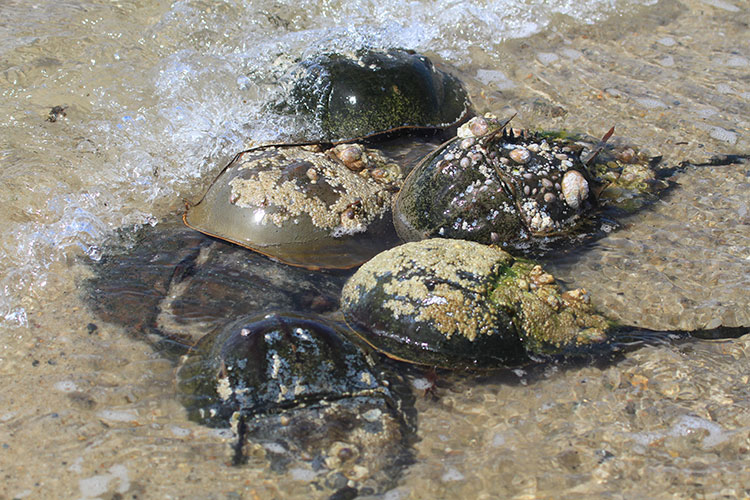Wellfleet Bay Wildlife Sanctuary
Conservation Projects at Wellfleet Bay
Wellfleet Bay Wildlife Sanctuary is actively involved with a variety of research projects that relate to wildlife monitoring, research, restoration, and conservation on the Outer Cape.
Many of the projects focus on endangered or threatened species, or those that have declining populations.
Rescuing Stranded Sea Turtles
Every fall, as sea turtles head south, some immature turtles become trapped by the unique "hook" of the Cape. They become disoriented and too cold to eat, drink, or swim. Cold-stunned, they wash up on the beach and are left as the water recedes during low tide. How we help sea turtles
Banding Songbirds
The primary goal of banding at Wellfleet Bay is to understand and monitor how migrating and year- round birds use the sanctuary’s different habitats. More about our bird banding program
Monitoring Diamondback Terrapins
Wellfleet Bay has been monitoring Outer Cape populations of the state-threatened Diamondback Terrapin since 1980. More about our terrapin work
Monitoring Coastal Waterbirds
Wellfleet Bay protects and monitors nesting Piping Plovers, Least Terns, Common Terns, and American Oystercatchers at several private, state, and Mass Audubon-owned beaches between Truro and Chatham. More about Mass Audubon's Coastal Waterbird Program
Horseshoe Crab Surveys and Tagging
Since 1990, Wellfleet Bay has conducted research and monitoring related to Atlantic Horseshoe Crab populations on the Outer Cape that has helped promote a sustainable fishery and guide local conservation efforts. More about our horseshoe crab conservation work
Ecological Management
Join Wellfleet Bay staff in field restoration work and other sanctuary projects that benefit wildlife populations. Projects are ongoing and year-round.






